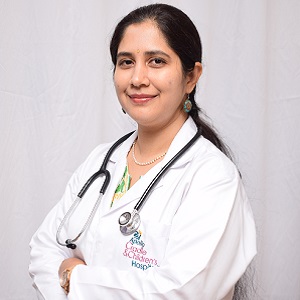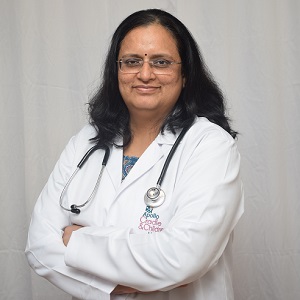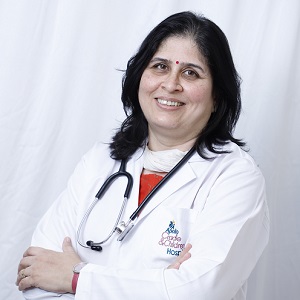What is gynaecology?
Gynaecology is the medical subject or branch of medicine that deals with female reproductive health. Gynaecology is the branch of medicine that takes care of women who are not pregnant but may have a sexual or reproductive disorder. The field of gynaecology includes both medicine and surgery. Gynaecology is a word that comes from the Greek roots gyne, which means woman, and logy, which means science or scientific study. The word "gynaecology" therefore means the science of women. The counterpart of gynaecology as a science is andrology, which deals with the male reproductive system. Reproduction is a major function of the body, and nearly every woman wants to be a mother at some point. To protect the fertility potential and reproductive health of a woman, the practice of gynaecology is very important. Since women carry the fetus, their internal health and reproductive potential are vital. A doctor who practises gynaecology is called a gynaecologist.
Who is a gynaecologist?
A gynaecologist is a doctor with a specialisation in diagnostic, preventive, and curative practices in gynaecology, or female reproductive health. The gynaecologist looks after the health of the woman's private parts and her internal reproductive mechanisms. Gynaecologists also offer advice on fertility and safe reproductive practices. Even during pregnancy and childbirth, women need the services of a gynaecologist. In the postpartum period, a woman also needs the services of a gynaecologist. From menarche to menopause, every condition of the female reproductive system needs the intervention and advice of a gynaecologist. Some of the gynaecologists also have an additional specialisation in obstetrics and help with pregnancy management and childbirth.
What do gynaecologists do?
Gynaecologists are experts in all aspects of the female reproductive system, from simple vaginal and pelvic examinations to complex surgical procedures and tumour removal. The female reproductive system is very complex with its hormonal fluctuations, internal organs, and menstrual cycles. Gynaecologists train for many years to gain the skills required for the diagnosis and treatment of common and rare female reproductive health issues. Gynaecologists perform pelvic examinations for possible inflammation or cancer screenings, as well as all types of fertility and reproductive tests. If you have a sexually active life, you need to go to the gynaecologist every six months to be screened for any possible sexually transmitted diseases. Even the disorders that have occurred since birth can be detected by gynaecologists. Gynaecologists also help with family planning and birth control. Surgeries related to the female reproductive system are also performed by trained gynaecologists.
What are the diseases that gynaecologists treat?
There are several diseases that gynaecologists treat with their expertise. The most common female reproductive diseases that gynaecologists treat are as follows:
- Endometriosis: The inflammation and outgrowth of the uterine lining—can cause pain and discomfort. The condition is called endometriosis and is very common among women.
- Ovarian cysts: Ovarian cysts are also a common reproductive health condition that occurs in the ovaries of women. Ovarian cysts are growths or sacs that are filled with fluid. Often, these cysts are benign, but they can also cause complications in the menstrual cycle and fertility of the woman.
- Fibroids in the uterus: Fibroids are non-cancerous tumours that can cause pain and complications. Often, uterine fibroids do not create any symptoms and can go undetected. However, at times, uterine fibroids can cause heavy bleeding during periods. Regular consultations with a gynaecologist can prevent and treat fibroids promptly.
- Vaginal infections: If you are experiencing itching and changes in vaginal discharge, there are chances that you have a vaginal infection from bacteria or fungus. Vaginal infections can be treated easily once you visit a gynaecologist.
- Menopause: Menopause is a major event in the reproductive life of a woman. During menopause, the woman goes through a lot of symptoms like hot flashes, mood swings, heavy bleeding, etc. Menopause is natural, but it can be improved with treatment and management with medications. A gynaecologist provides advice on the management of menopausal changes.
When should I see the doctor?
Gynaecologist appointments and visits to a gynaecology clinic should be routine for women. Starting at age 15 or 16, the woman should go to a gynaecologist until menopause is over. Regular visits to the gynaecology clinic prevent and treat a lot of sexual diseases and disorders. A gynaecologist visit is especially important if you notice symptoms of reproductive diseases. You should also go to the gynaecologist before getting married or planning a baby so that the doctor can guide you.
Conclusion
Like all other medical sciences, gynaecology is a major science. Since it is linked with reproduction and fertility, it plays a pivotal role in the continuation of the human race. The services of gynaecologists are a huge part of the well-being of women around the world.
Request an appointment at Apollo Cradle, Bengaluru - Jayanagar. Call 1860-500-4424 to book an appointment.
The most commonly used tool of the gynaecologist is a speculum.
The gynaecologist will do an external and internal examination of your reproductive parts. She or he will also look into your medical history.
If the urinary health issue is linked to gynaecological reasons, the gynaecologist can treat it to some extent.
Any kind of bad odour from the vagina, itchiness or any irregular periods should be discussed with the doctor.
The vagina, cervix, vulva, uterus, and ovaries are parts of the female reproductive system.

 93% Patient Satisfaction Score
93% Patient Satisfaction Score













